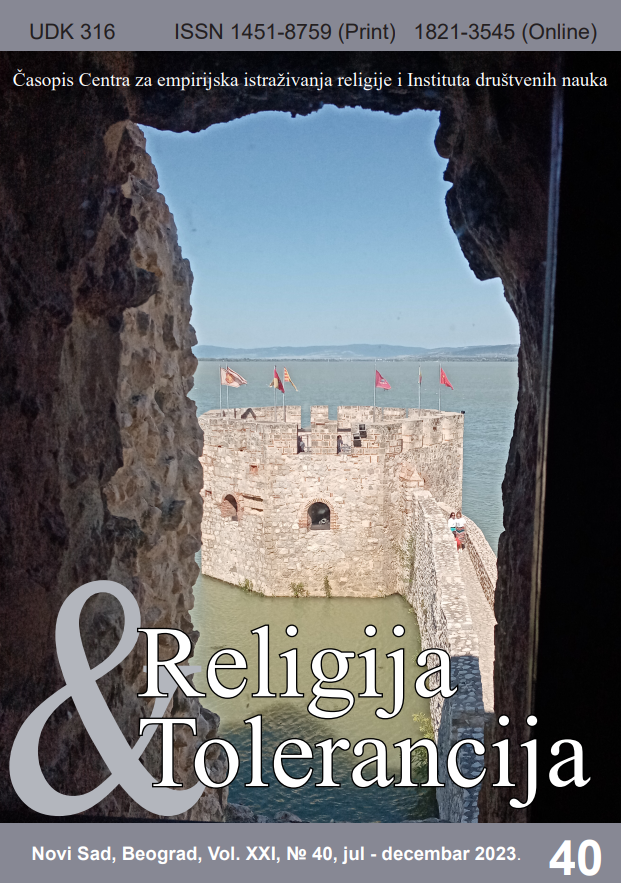СУФИЗАМ – ДЕРВИШКА БАШТИНА КАО СПОНА ИЗМЕЂУ ИСЛАМА И ХРИШЋАНСТВА НА БАЛКАНУ
SUFISM- DERVISH HERITAGE AS A LINK BETWEEN ISLAM AND CHRISTIANITY IN THE BALKANS
Author(s): Amra HalilovićSubject(s): Christian Theology and Religion, Theology and Religion, Islam studies
Published by: Centar za empirijska istraživanja religije (CEIR)
Keywords: Sufism; dervish orders; mysticism; the Balkans; spirituality; Islam; Christianity; Blagaj Tekke on the Buna river; Ostrog monastery
Summary/Abstract: An intense transition of Turkish and Islamic culture in the Balkans in the Ottoman period could not be comprehensive and complete since the Balkans had already had both its own native and autochthonous cultural identity, mainly Christian Orthodox. This cultural contact between Islam and Christianity, specifically in the case of the Balkans, created a new form of coexistence that we did not have the opportunity to see in other parts of the world. Religious holidays were good examples of social phenomena in which the values of domestic Orthodox, oriental Muslim and old Turkish customs were somehow united. Nevertheless, one of the most important socio-religious movements that managed to couple the local heritage with the new cultural and ideological one was Sufism, that is, the dervish heritage, which is the backbone of this paper. Although khanqahs/ribats, tekkes and other dervish institutions were fundamentally connected to Islam, sociologically speaking, they by no means belonged only to Muslims, which is confirmed by numerous data showing that Christians regularly attended dervish gatherings in such places, and that they often sought refuge in them. This was not the case with mosques that were clearly associated with the Muslim population. This fact has given us the right, as well as the opportunity, to investigate in more detail the role of dervish orders in uniting all peoples in our area in this paper. Monasteries, tekkes, khanqahs and turbets go beyond religious and ritualistic needs of the population. They penetrate deep into the core of spiritual needs of people and as such belong almost simultaneously to both Christians and Muslims. Those spiritual heritages from both sides in question have been the main guarantee for a natural, prosperous and productive common life in these areas. After the introductory remarks about Sufism and dervish orders in the Balkans, this paper tries, using concrete examples, to point out to the similarities between Christian and Muslim spiritual and mystical traditions in the Balkans.
Journal: Religija i tolerancija
- Issue Year: 21/2023
- Issue No: 40
- Page Range: 287-306
- Page Count: 17
- Language: Serbian

